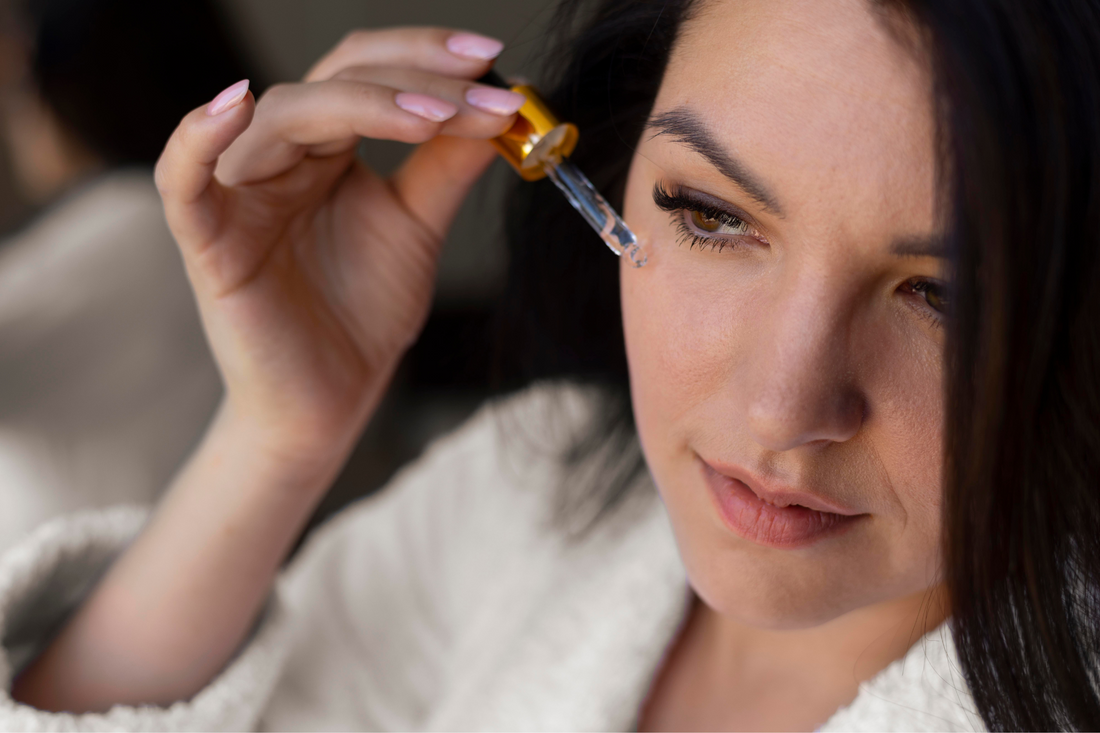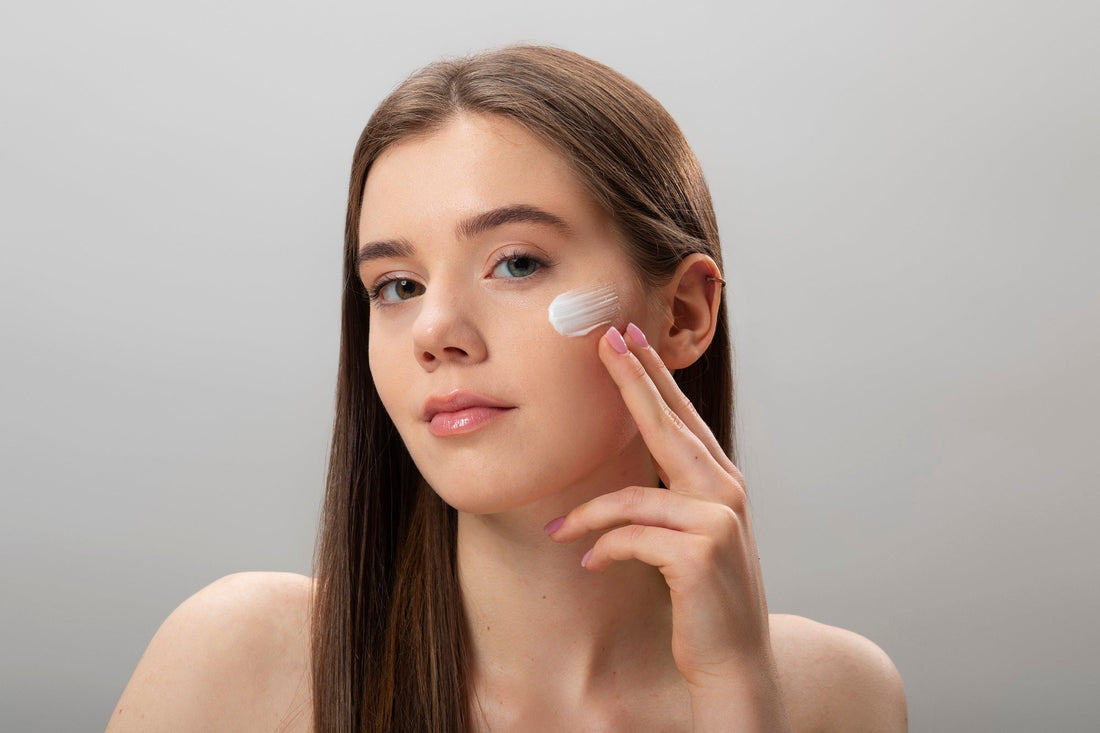Waking up to dull, tired skin or battling persistent pigmentation and early signs of aging? You’re not alone. Many skincare enthusiasts, whether beginners or advanced users, turn to Vitamin C serum for its glow-boosting and protective powers. This antioxidant-packed staple can help restore brightness, reduce spots, and build resilience against daily skin stressors.
But here’s the big question: When should you use a Vitamin C serum—morning, night, or both? This guide breaks it down clearly, helping you understand the ideal timing and frequency, and how to unlock maximum benefits from your antioxidant serum vitamin C.
What is Vitamin C Serum?
A Vitamin C serum is a skincare product concentrated with Vitamin C, often in stabilized forms like Ethyl Ascorbic Acid or L-Ascorbic Acid. These serums are water or oil-based and designed to absorb quickly into the skin.
Top benefits of Vitamin C serum:
- Brightens dull skin and evens out tone
- Promotes collagen production
- Reduces pigmentation and age spots
- Fights oxidative stress from UV rays and pollution
- Protects skin as an antioxidant serum
Many serums now feature ingredients beyond basic Vitamin C. You'll often find potent blends including Ferulic Acid, Squalane, Centella Asiatica, and Astaxanthin—all powerhouse ingredients that take antioxidant protection and repair to the next level.
When to Use Vitamin C Serum in Your Routine?
Let’s simplify your routine: Cleanser → Toner → Serum → Moisturizer → Sunscreen (AM)
Vitamin C serum should always be applied after cleansing and before moisturizing. You can use it in the morning, night, or both, depending on your skin’s needs and the serum’s formulation.
Pro tip: If you’re new to Vitamin C or have sensitive skin, start by using it once a day—preferably in the morning—then gradually build up.
Best Vitamin C Serum
One standout in the category is the C Byond Vitamin C Serum.
This advanced full spectrum serum combines potent antioxidants and skin-repairing ingredients:
- 6000x more potent antioxidant performance
- Powered by Astaxanthin, Ferulic Acid, Centella, and Squalane
- Features Hydrosomal Delivery Technology for deeper, stable absorption
- Lightweight, non-comedogenic, and suitable for all skin types
This makes C Byond a true antioxidant serum vitamin c solution—with added benefits of being a centella face serum, squalane serum, and astaxanthin serum in one.
When to Apply Vitamin C Serum?
There's no one-size-fits-all answer. Some serums are optimized for morning use, others for nighttime repair.
It depends on:
- Your skin goals
- The formulation’s strength and stability
- Your skin type and tolerance
Let’s dive into both AM and PM applications.
AM Application of Vitamin C Serum
Using Vitamin C in the morning helps fortify your skin against the day’s challenges.
Benefits:
- Enhances sunscreen performance
- Shields from pollution and UV-induced damage
- Keeps skin radiant all day long
Vitamin C is an antioxidant serum that neutralizes free radicals generated by sun exposure and environmental stress. Pairing it with SPF offers a powerful daytime defense.
C Byond's inclusion of Ferulic Acid and Astaxanthin makes it a top choice for AM routines.
Benefits of Using Vitamin C Serum in the Morning:
- Brightens dull complexion
- Protects against pollution & UV damage
- Keeps skin glowing throughout the day
- Works synergistically with sunscreen
PM Application of Vitamin C Serum
At night, your skin enters repair mode. Using Vitamin C serum during this time enhances cell turnover and collagen production.
Benefits of night-time application:
- Better absorption with no external aggressors
- Reverses daily oxidative damage
- Promotes deep repair and texture refinement
- Helps fade dark spots while boosting elasticity
If your skin is sensitive or dry, using it at night can reduce exposure to UV or heat, making the experience more gentle.
When to Apply Vitamin C Serum—Morning or Night: Which is Better?
Morning: Best for protection and brightening. Night: Ideal for repair and anti-aging.
Best Practice: Start with once a day. If using a stable, multi-functional product like C Byond, you can gradually work up to twice daily use (AM + PM) for comprehensive benefits.
How to Determine the Right Vitamin C Serum Concentration for Your Skin?
Vitamin C serums typically come in concentrations ranging from 5% to 20%.
- 5–10%: Ideal for beginners or sensitive skin
- 10–15%: Suitable for normal or combination skin
- 15–20%: Best for experienced users or oily skin
Look for stable forms like Ethyl Ascorbic Acid, which offer strong results with less irritation—just like in C Byond.
Also consider texture:
- Oil-based serums work well for dry or mature skin
- Water-based formulas are better for oily or acne-prone skin
How Often Should You Use Vitamin C Serum?
Once or twice daily is the norm, depending on your skin’s tolerance. Overuse, especially with high concentrations, can cause irritation.
Follow label guidance carefully. C Byond recommends 2–3 drops, applied AM and PM for best results.
When Will You See the Results of Vitamin C Serum?
Consistency is key! Here’s a realistic timeline:
- Glow boost: 7–10 days
- Improved tone and texture: 3–4 weeks
- Reduced pigmentation/dark spots: 6–8 weeks
With advanced serums like C Byond (thanks to Hydrosomal Delivery), you may notice faster and deeper results.
FAQs:
- Can I use Vitamin C serum every day? Yes, most people can use it daily—start slow if you're new.
- Should I apply moisturizer after Vitamin C? Absolutely—moisturizer helps seal in the serum’s benefits.
- Can I use Vitamin C with retinol or AHAs? Yes, but ideally space them out (Vitamin C in the AM, retinol in the PM).
- Does Vitamin C serum expire quickly? Yes, especially unstable forms. Use within 3–6 months after opening.
- What happens if I skip sunscreen after Vitamin C? You risk photo-sensitivity and reduced protection—always follow with SPF.
- Is Vitamin C safe for sensitive skin? Yes, especially lower concentrations and stable derivatives like Ethyl Ascorbic Acid.
- Should I store my Vitamin C serum in the fridge? Optional, but cool, dark places prolong shelf life.
- What’s the shelf life of stable Vitamin C serums like C Byond? Usually 12–18 months unopened, and longer stability after opening compared to traditional forms.
- Can I use Vitamin C serum on acne-prone skin? Yes. Look for non-comedogenic formulas with soothing ingredients like Centella and Squalane.
- Is it okay to use Vitamin C serum under makeup? Definitely—just let it absorb fully before applying other products.
Conclusion
Vitamin C serum is a powerhouse in any skincare routine—whether you’re targeting dullness, dark spots, or premature aging. The key to results? Timing and consistency.
Morning offers protection and glow; night delivers deep repair. A well-formulated product like C Byond Full Spectrum Serum ensures your skin gets the most from each drop—day or night.












